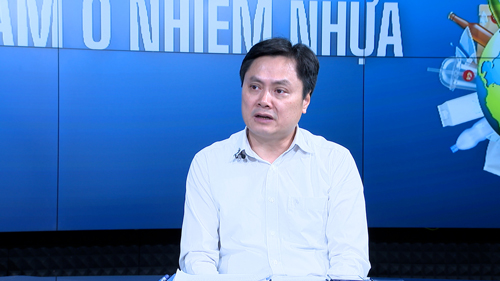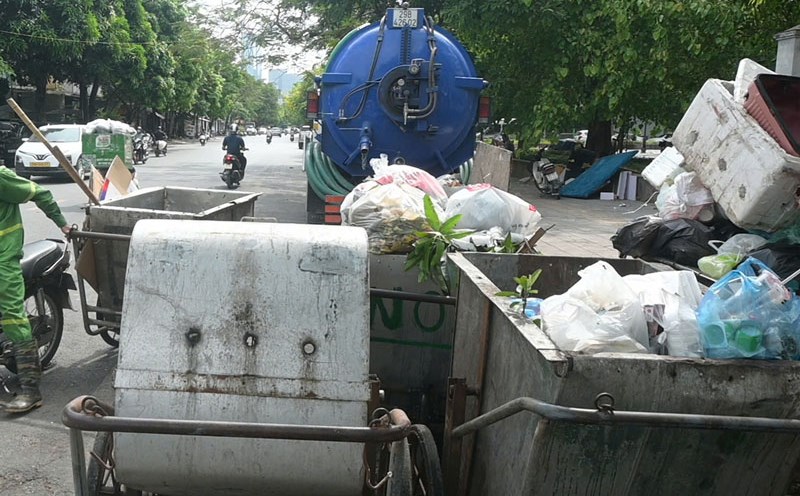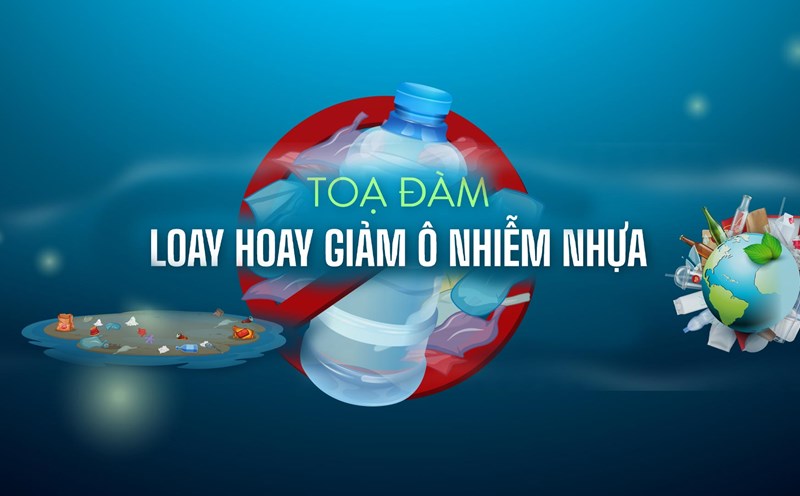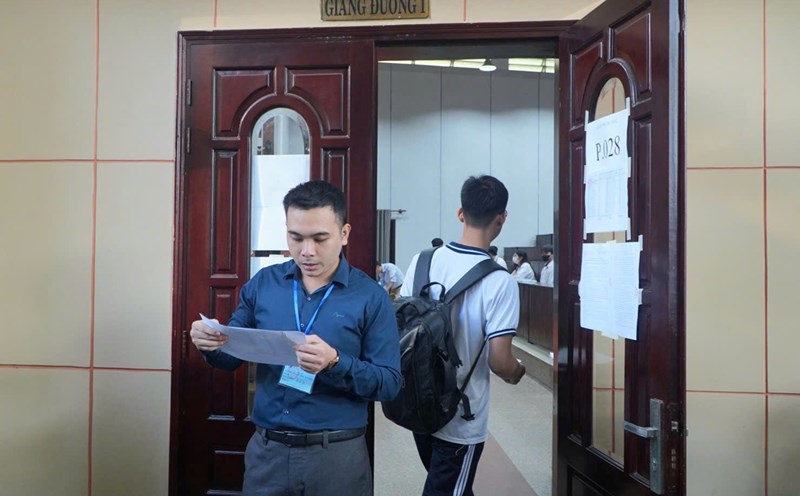Right and necessary
In the context of increasingly serious plastic pollution, promoting digital transformation in plastic waste management is becoming an inevitable trend. Applying digital technology not only helps improve the efficiency of collection, classification, and recycling but also enhances transparency, monitoring, and management of waste data accurately and synchronously.
Many localities and businesses have deployed digital platforms such as waste management software, garbage collection monitoring applications, collection vehicle locating systems, QR codes to identify waste types, etc. Thereby, contributing to the formation of a smart plastic waste management ecosystem.
Sharing about this issue, Associate Professor, Dr. Vu Thanh Ca - senior lecturer of the Faculty of Environment, Hanoi University of Natural Resources and Environment - said that promoting digitalization in state management, especially in the field of taxes, fees and environment, is a correct and necessary direction.
When there is no complete and transparent data system, the assessment and decision-making will be inaccurate, thereby easily leading to unfairness in management. The application of technology, combined with digitalization with the post-inspection mechanism will be a breakthrough. When we have complete and accurate data, we can reduce initial licensing procedures - which are currently too cumbersome. Instead, post-inspections on digital data platforms will help make the right decision, in line with reality and increase fairness.
"In particular, in the field of waste management, especially plastic waste, the application of digital technology and artificial intelligence will contribute to improving the efficiency of management, monitoring and treatment. This is one of the tasks that need to be promoted in the coming time to protect the environment and develop sustainably" - Associate Professor, Dr. Vu Thanh Ca emphasized.

Will create a breakthrough
Sharing with Lao Dong Newspaper, Mr. Nguyen Trung Thang - Deputy Director of the Institute of Agricultural and Environmental Policy Strategy, Ministry of Agriculture and Environment - said that the Ministry is focusing on developing separate decrees, regulating the recycling responsibilities of manufacturers and importers, including the group of packaging products, including plastic packaging.
At the same time, the Ministry of Agriculture and Environment also amended Decree No. 45/2022/ND-CP on administrative sanctions in the field of environmental protection, especially in the content related to household waste management.
Along with completing the legal framework, the Ministry of Agriculture and Environment has identified a number of important orientations in the coming time.
First, it is necessary to improve the system of standards and technical regulations for recycled products, especially regulations on recycling levels and recycling rates applied to plastic packaging.
Second, it is necessary to study and evaluate practices to adjust tax and fee policies for single-use plastic products, in order to limit consumption and promote the conversion to environmentally friendly materials.

In particular, Mr. Nguyen Trung Thang also emphasized the role of digital transformation and the application of science and technology in plastic waste management. New digital platforms and business models based on data, along with technologies such as artificial intelligence or big data, need to be widely applied to support people in classifying waste, improving recycling capabilities and optimizing the entire waste management chain.
The synchronization of legal policies and technology transformation is expected to create a breakthrough in plastic waste management, contributing to reducing environmental pollution and promoting the development of a sustainable green economy - Deputy Director of the Institute of Agricultural and Environmental Policy, Ministry of Agriculture and Environment emphasized.
World Environment Day June 5, 2025, launched by the United Nations Environment Program (UNEP) with the theme "Beat Plastic Pollution", aims to call on the global community to take drastic action to address plastic waste - one of the most urgent environmental challenges today.
This is the second time in three years (2023 - 2025) that this theme has been selected, clearly demonstrating the global priority in controlling plastic pollution, while reaffirming the commitment to using resources effectively, protecting biodiversity, improving adaptability, promoting innovation and enhancing regional and international cooperation, towards a circular economy and sustainable development.










